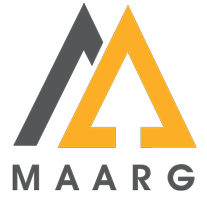What is Authorized Capital and Paid up Capital
Authorized Capital
Authorized capital can be regarded as limit on the amount of share capital which determines how much shares can be issued to the shareholders. The limit that is placed on the authorized capital of a company can be changed or increased by gaining consent from the shareholders and by paying an extra charge to the registrar of companies. At present the minimum amount of authorized capital that a company must have is 1 lakh rupees for private limited and One-person company and 5 lakh rupees for public companies. At present a charge fee of Rs 5000 is charged by the Ministry of Corporate Affairs in issuing the minimum authorized capital for a private company.
Steps to Increase Authorized Capital
- Articles of Association:
Make sure there is provisions which enable the increase in authorized capital. In most cases there are provisions. If in any unfortunate case the articles of association prevent such action, then the proceedings must be continued with the aim of altering them.
- Board Meeting:
First a board meeting must be convened by proving a notice to the Director. Then gain approval for increasing the authorized capital. After that a date must be fixed in order to call an extra ordinary general meeting together.
- Extra Ordinary General Meeting:
A notice must be sent stating the agenda of the meeting explaining the purpose of altering the memorandum of association and the articles of association in order to increase the authorized capital to issue more shares to the shareholders or other interested parties.
- Submitting ROC (Registrar of Company) Forms:
After the resolution is passed in the extraordinary general meeting within 30 day’s form SH-7 must be filled and submitted to the ministry of corporate affairs along with the following documents.
- The altered and new Memorandum of Association
- A true copy of ordinary resolution which is authorized.
- Notice of conveying the extra ordinary general meeting.
- Allotment of Shares:
The increase in authorized share capital must be mode known to everyone though any platform. The paid up-capital of the firm can be increased by issuing new equity shares
While issuing authorized capital to shareholders a safety buffer is always kept by the company, i.e not all of the authorized capital is issued by the company, for example: A company has an authorized capital of Rs 50 crores but they may only issue 40 crores. The rest of the 10 crore is kept for future uses in case the company every comes in need of funds. When shares are allotted the control over the company is diluted so the authorized capital is not raised or issued with the intent of limiting or restricting the control with regards to the affairs of the company.
Paid-Up Capital
When a company issues shares of stock to shareholders in exchange for money it is known as paid-up capital. Paid-up capital is always equal to or less than authorized capital, it is never more than the authorized capital. Until the amendment made on the companies act on 26th May 2015 the paid up capital should be worth at least minimum of the authorized capital. But due to the amendment the paid-up capital can be as low as Rs 5000. The reason it has been stated as 5000 is because it is the minimum amount one needs to invest in their business. Paid-Up capital has the following characteristics
- Both paid-up capital and authorized capital are included in the company’s balance sheet while assessing the net worth of the organization. But when it comes to actually assessing the net worth of the company only the paid-up capital of the company is considered.
- The business expenses of the company are met through issuing paid-up capital to the shareholders.
- During the initial 60 days of incorporation of the company, shares must be issued by the company on the amount that was decided as the paid-up capital amount during incorporation.
- The shares which have been issued by the company could also be bought back by the company. But this particular scenario is subject to certain conditions and constraints. This act of buying back stock or shares back from the investors is known as stock buy backs. Share buy backs have over shadowed dividend as the most desirable way to return cash to investors. Buybacks can be due to a number of reasons
- Ownership consolidation.
- Undervaluation
- Boosting certain key financial ratios.
- For preserving the stock price.
Section 68,69 and 70 of the companies act of 2013 and rule 17 of the companies incorporation 2014 specifies the conditions to be met for buy back of the shares.

Recent Comments